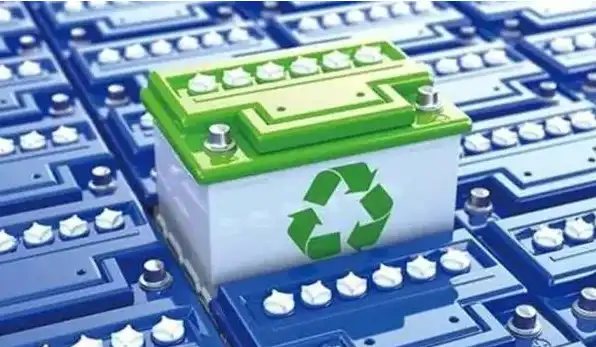Power battery recycling new track:Technology assistance, industry tightening, market expansion
As the new energy vehicle market enters a new stage of development, the construction of a power battery recycling system is urgent.

With the advent of retirement of power batteries for new energy vehicles, battery recycling has become a popular new track.
During this year's National Two Sessions, many representatives made suggestions on the recycling of power batteries. As the new energy vehicle market enters a new stage of development, the construction of a power battery recycling system is urgent. Many industry insiders also said that in the process of standardizing supervision by relevant departments and coordinating promotion by enterprises, the power battery recycling industry will gradually enter a healthy competition track.
** **
Recycling issues are becoming more prominent
According to the forecast of the China Association of Automobile Manufacturers, in 2024, total automobile sales in the Chinese market will reach 31 million units, a year-on-year increase of 3%, of which new energy vehicle sales will reach 11.5 million units, a year-on-year increase of 20%.
"In the next few years, China's new energy vehicles will maintain a certain momentum of development. At the same time, battery recycling issues will become more prominent." Fu Yuwu, honorary chairman of the China Society of Automotive Engineering, emphasized that "if the new energy vehicle industry wants to achieve high-quality development, it must establish a safe, green and sustainable new business format for the battery industry."
据新能源电池回收利用专业委员会预测,到2027年,中国新能源车动力电池累计退役量将达到114万吨。 Behind such a huge scale of decommissioning, power battery recycling has become the key to solving resource, cost and carbon emission problems.
China's power battery raw material resource endowment is poor. In 2022, its external dependence on nickel, cobalt and lithium will reach 93%, 98%, and 63% respectively. Strengthening the recycling of power batteries can meet the resource needs of 20% of lithium, 25% of cobalt, and 11% of nickel for domestic new energy vehicles every year, and reduce the external dependence of key raw materials for new energy. Data shows that when the proportion of disassembled and recycled battery materials is 40%, the battery cost can be reduced to 0.4 yuan/Wh, and when the proportion of recycled materials reaches 90%-95%, the battery cost can be reduced to 0.2 yuan/Wh. In addition, old batteries contain toxic and harmful substances such as lead, cadmium, and mercury. Timely recycling and reuse can reduce environmental pollution.
It is worth noting that the power battery recycling market is not limited to the domestic market. "After Europe and the United States successively issued battery bills, it has become more difficult for China to obtain used batteries and recycled materials from European and American countries." Chen Xuehua, chairman of Huayou Cobalt Group, mentioned that as the world's largest exporter of lithium battery materials, if resources cannot be continuously returned, China's energy metals will be in a net outflow state for a long time, which will bring challenges to the safe development and continued leadership of the lithium battery industry chain.
Technology helps transformation and upgrading
Dismantling technology is one of the bottlenecks facing the development of power battery recycling. It is understood that there are currently more than 5000 power battery packs in China, with a wide variety, complex structures, diverse connection forms, inconsistent design guidelines, and rapid replacement. Coupled with factors such as diverse brand models of battery packs for retired batteries and uncertain retirement status, most of the current dismantling is mainly manual.
However, manual dismantling faces many risks, such as the high voltage of the battery pack, which poses a risk of electric shock; the internal wiring harnesses and busbars of the battery pack are complex, which poses a risk of short circuit.
Zhang Yuping, deputy general manager of Gemma Co., Ltd., said that with the help of artificial intelligence, Internet of Things, big data and other information technologies, power battery recycling can be transformed from the current manual and mechanized dismantling to automated and intelligent dismantling. It is the only way to transform and upgrade the recycling industry.
Regarding further improving the power battery recycling system, Cao Guangping, partner of Coachman Consulting, suggested further strengthening the formation, traceability and execution management of waste battery coding information. “这样便于追踪动力电池从哪来,到哪里去,在合适的节点进行处理,协调电池回收效益。甚至可以实施电池回收比例与下一年生产碳税配额相挂钩的奖惩制度,回收率高的电池企业在下一年度可获得更低的碳税或税收减免。”
In addition, the hierarchical utilization of retired power batteries is also one of the directions of recycling. With the large-scale development of renewable energy, there is a strong demand for new energy storage construction. Retired new energy vehicle power batteries can be applied in scenarios such as optical storage charging stations and energy storage bases through cascade utilization, greatly reducing the cost of allocating energy storage. investment cost.
Industry thresholds may be gradually tightened
At present, there are more than 190 automobile production and power battery comprehensive utilization enterprises in China that have set up more than 10,000 recycling service outlets across the country, with preliminary battery recycling capabilities.
"Although China's power battery recycling system has begun to take shape, there are still some issues that urgently need regulation." Cao Guangping told the China Energy News reporter that there are currently "white-list" enterprises with formal qualifications and "black workshop" enterprises with no qualifications on the market. The former produces in formal environmentally friendly methods but makes little profits, while black workshop enterprises produce in violation of regulations and are not environmentally friendly. Make a lot of money.
It is understood that a large number of corporate advertisements related to "power battery recycling" can be found on many social media and e-commerce platforms. These companies are basically updated in real time and online for a long time, and some companies even support door-to-door recycling.
